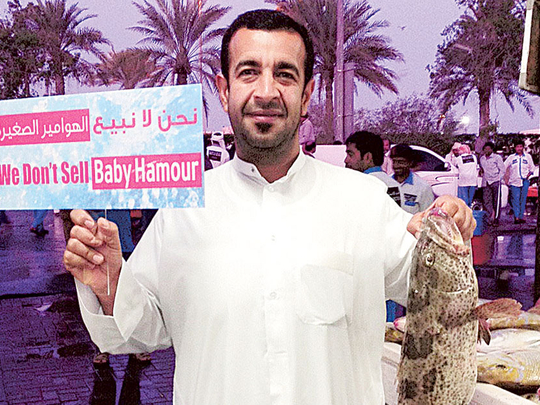
Abu Dhabi: Despite increasing global prosperity and development, nearly 805 million people across the world are still undernourished today, and the challenge of feeding more people is only growing with the world population set to hit nine billion by 2050.
This requires policy changes and innovation that support sustainable agricultural practices and, to that end, 300 scientists and industry experts are convening in the capital until Wednesday (March 11) at the second edition of the Global Forum for Innovations in Agriculture.
On the sidelines of the event, a top environmental financier told Gulf News that a country like the UAE can truly contribute with the pioneering research projects it is currently undertaking.
“The ongoing project at Masdar Institute of Science and Technology to develop aviation biofuels using saline water, aquaculture and local halophytes is an example of the kind of schemes we need as the world looks at addressing its food and water security challenges with burgeoning populations,” Dr Naoko Ishii, chairperson and chief executive officer of international environmental financier, the Global Environmental Facility, said.
“Developed countries like the UAE can contribute in terms of research and financing to support agricultural projects that respect the world’s natural boundaries and preserve its ecosystems,” she added.
The three-day forum is being held under the patronage of Shaikh Mansour Bin Zayed Al Nahyan, Deputy Prime Minister, Minister of Presidential Affairs and Chairman of the Abu Dhabi Food Control Authority (Adfca). In addition to a number of conferences that discuss climate-smart agriculture, food waste and losses, technological innovations and urban agriculture, there is also an exhibition featuring 250 industry suppliers and governmental entities.
Speaking at the opening ceremony, Dr Rasid Bin Fahd, Minister for Environment and Water, said the country hopes to increase its agricultural production by two-thirds by 2050 so that it can cater to a growing population.
“It has been proven that traditional agro practices do not succeed except in increasing the nutrition gap between developed nations and developing countries, which is why more sustainable methods need to be developed and widely implemented. Our country has an arid climate that faces high temperatures and little access to water, so we place much emphasis on innovation that can bring about such a fundamental change,” the minister added. Dr Ishii added that the world had long been using unsustainable agro-practices, and was only now becoming aware of the threats these pose.
“There are some natural boundaries placed on us by our global ecosystem, including climate change, soil fertility, biodiversity, water supple, ozone layer and nutrient stores. We have already transgressed the limits of climate change and biodiversity in trying to feed more and more people using limited land, and this is already affecting poor populations around the globe,” she explained.
“As the population grows over the next few decades, we need to preserve the rest of our natural capital for future generations,” Dr Ishii added.












